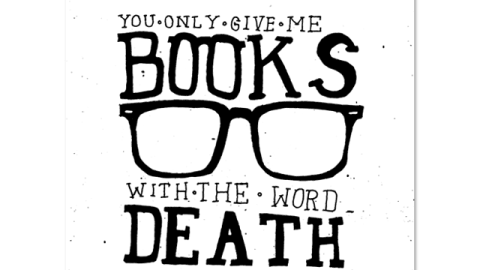The Book is Dead. Long Live the Book!

Unscientific Poll: On average, during a typical New York City morning subway commute, Summer 2011, there are four people reading on tablets and e-readers, and five reading print books, up from about 1 to 7 two summers ago. Outside of rush hour, many a toddler can be seen tapping away at an interactive picture book. On the beach, the e-readers (more legible than tablets in direct sunlight, less bulky in the beach bag than print books) proliferate exponentially.
Hard, Cold Fact:In January 2011, Amazon’s ebook sales, up 200% from the previous January, outstripped paperback sales for the first time ever.
The digital tsunami has finally reached the shores of Big Publishing. How is the industry responding? On the whole, sluggishly – with a few notable exceptions.
The digital tsunami took a bit longer to reach the shores of book publishing; technology drives change in every industry, and while the ability to transmit books electronically is nothing new, nobody wants to read War and Peace on a computer. Over the past few years, however, devices like Amazon’s Kindle and Apple’s iPad have made readers a proposition they can’t refuse: cheap books you don’t have to lug around or buy special furniture to store. For the average reader, the romance of “that old book smell” and the feel of deckle-edges is a tough sell against portability and convenience. And for the 3-8 year old picture book audience, the crisp graphics and interactivity of apps are basically irresistible.
Not surprisingly, though, the publishing industry is full of bibliophiles who, to paraphrase Anna Quindlen, love the body of the printed book almost as much as its soul. Many have been slow to accept that a paradigm shift is happening in their industry.
Rick Richter, founder and CEO of Ruckus Mobile Media, is the rare exception. A 20+ year veteran of the publishing industry, he co-founded the acclaimed Candlewick Press in Massachusetts, and went on to become head of sales and then of children’s publishing at Simon & Schuster. In 2010, he left behind the comparative safety of corporate publishing to launch Ruckus, one of the first children’s app developers to publish original stories in digital-only format.
For job seekers, entrepreneurs, investors, and established businesses, there are obvious advantages to foreseeing major shifts in industry, and to “getting there first.” Yet success can make people, and industries, conservative. When disruption happens, it often happens from the outside; it was Amazon, after all, not Random House, that built the Kindle.
Historical perspective is a valuable tool for spotting and embracing change. In Richter’s case, his own family history came in handy:





